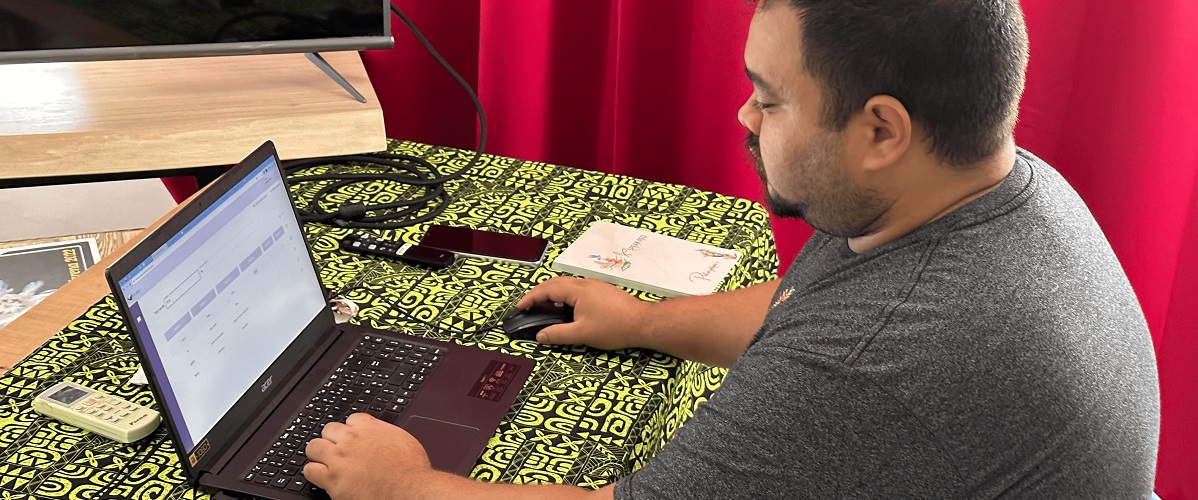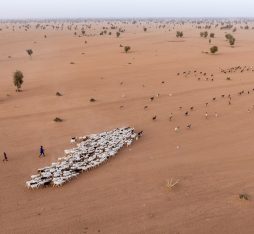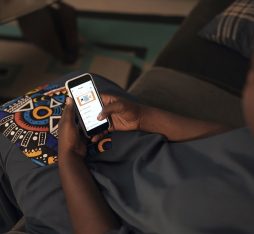Almost all of the world’s population speaks only a handful of the seven thousand languages found around the world. There is a plethora of reasons as to why other languages are at risk of dying, or even disappearing entirely. By the end of the century, half of the world’s languages could disappear —and with them, the practices, customs and usages that form our planet’s cultural diversity. The UN General Assembly has highlighted the restricted window of time available to safeguard these languages by making the 2022–2032 period the International Decade of Indigenous Languages.
Helping Languages Live Longer Digitally
Heiura Itae-Tetaa is Tahitian and has long been driven by the desire to preserve her mother tongue. In 2018 she created a school dedicated to learning Tahitian, before the sudden standstill brought about by the COVID-19 pandemic highlighted a crucial shortcoming. “I realized that there was no simple tool for transferring a language to a digital medium and giving it new life. E-Reo was created in 2022 as a response to that technological vacuum and works toward a key objective: to provide an accessible platform in the form of a toolkit that allows any legitimate organization to produce mobile applications in an indigenous language, for the purposes of teaching, showcasing or promoting them, etc.” The startup’s story began when Heiura met Sébastien Christian, a French-American scientist whose experience and skills in the overlapping areas of linguistics, neuroscience and AI contributed to the platform’s creation from a technological standpoint. Together, they built a team with talents in language learning, software engineering and UX/CX to bring the E-Reo offering to life.
An ergonomic and accessible platform, created in the form of a toolkit, for producing mobile applications in indigenous languages with complete autonomy
Turnkey Mobile Apps
What Exactly Is It? “It’s a factory for creating mobile apps with a focus on indigenous languages,” concludes Sébastien. “There is a library of application templates available (five to date), from which the client can choose the one that corresponds to their needs before designing it and customizing it autonomously, without needing to be a linguist or write a single line of code. The apps created are all free of charge, usable offline and backed by a user respect charter — there is no tracking, no data collection and no geolocation.”
The technical solutions it offers are backed by sophisticated proprietary algorithms. A first set of algorithms focuses on the organization of the linguistic data (words, phrases, expressions and audio/image content) provided by customers to create their applications. To do so, the algorithms evaluate the semantic and grammatical content of each entry in order to suggest relevant labels for classifying and using the content. In addition, E-Reo has developed an embedded intelligent module based on a refined with conditional probabilities tailored to human behavior, which is specifically dedicated to personalizing the learning pathway for a language. The aim of this component is to optimize the user or learner’s progress by adapting to their cognitive characteristics, allowing it to suggest the right new or repeated elements to be memorized or rememorized, at the right time.
Disruption on the Horizon
Beyond these technologies, which have already been incorporated into its platform, the startup is involved in advanced research through a public-private partnership, alongside academic and institutional stakeholders such as the University of French Polynesia (Université de Polynésie Française — UPF), the Max Planck Institute in Germany and the French National Center for Scientific Research (Centre national de la recherche scientifique — CNRS). The issue being explored within this framework relates to the amount of data needed to produce automatic language analysis or translation systems. “Of the 7000 languages in the world, the number of them that are sufficiently documented to achieve automatic processing is minimal,” Sébastien points out. “For example, Google Translate only supports around one hundred languages, while Meta’s No Language Left Behind project is nearing 200. Our work is focused on a new approach to the issue of automated language processing for generation purposes. A first key milestone is to reach a stage where, starting from a reduced linguistic corpus, educational content can be produced, especially concerning grammar.” To that end, the project aims to develop a hybrid model that combines a data-based approach with a system of rules to produce a robust and explanatory automated grammatical processing solution.
E-Reo: Championing Languages All Around the World
In the year since its release to market, around fifteen languages worldwide have been able to tap into a digital reality and generate attractive educational content with ease via E-Reo, reaching 10,000 end users. From its Polynesian foundations in the heart of the Pacific, to the Americas and Asia, E-Reo has global ambitions. Since 2023, the startup has received a boost as part of Orange Fab’s Women Start program. “It’s an innovative solution,” explains Fanny Medina, Director of Business Development, Open Innovation at Orange, “which is receiving attention due to its ability to preserve the essential aspects of our customers’ cultures, particularly on the African continent.” Africa, Heiura notes, is home to a third of the world’s languages. “Through this partnership, E-Reo can capitalize on Orange’s global presence to extend the geographic reach of its offering. The challenge for indigenous languages—of preserving them and revitalizing them—is immense. It’s a battle that must be fought, and E-Reo is a weapon to help keep them alive and make them part of our lives.” In just one year since its creation, the platform has been used by customers for 15 different languages, with 25 applications produced and 10,000 end users.
Indigenous language :
There are more than 4000 indigenous languages found worldwide, out of a total of 7000 languages. Indigenous languages are an essential cornerstone of Indigenous peoples’ identities and in the preservation of their cultures. Their disappearance is associated with a risk of loss of traditional knowledge and a decline in cultural diversity on a global scale.
A knowledge representation model based on a graphical description of random variables, notably used in search and recommendation engines.
 Heiura Itae-Tetaa
Heiura Itae-Tetaa
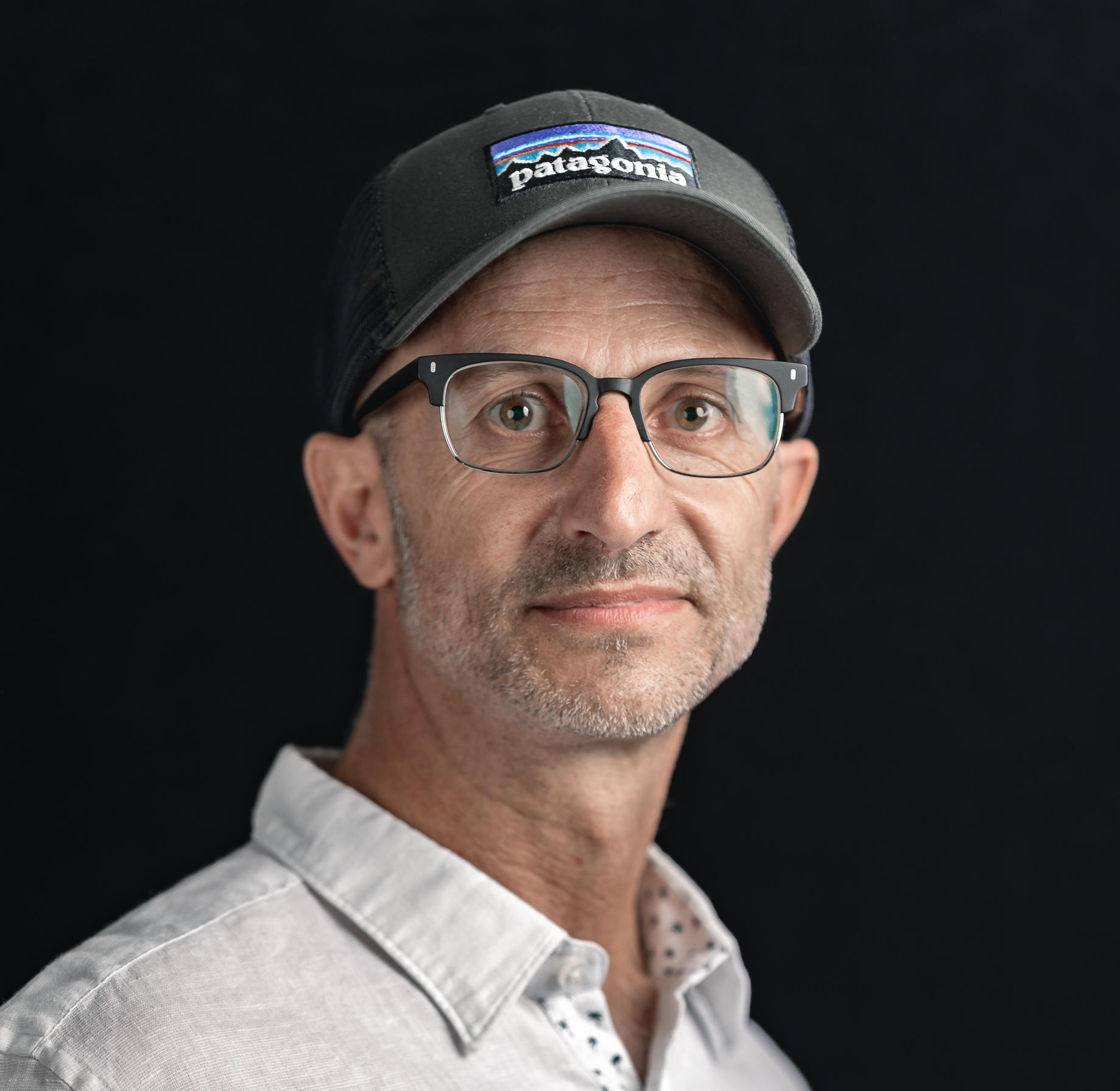 Sébastien Christian
Sébastien Christian
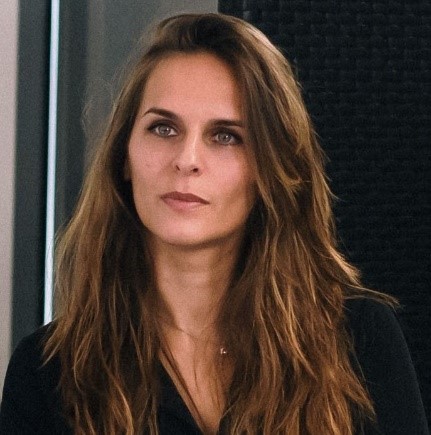 Fanny Medina
Fanny Medina

